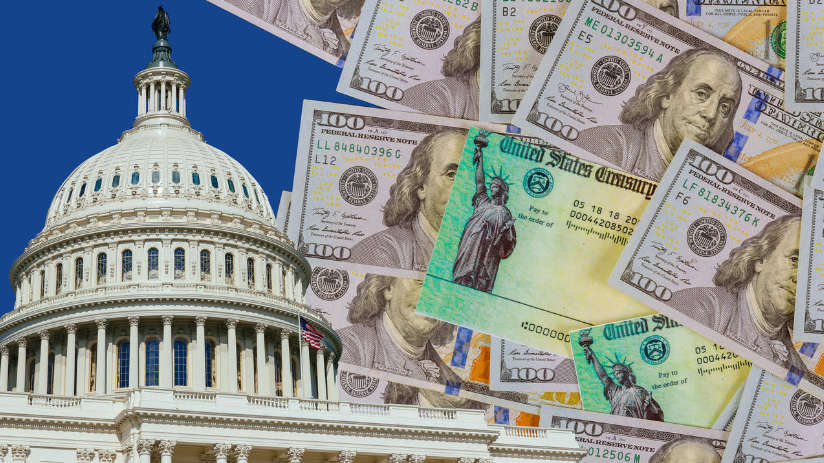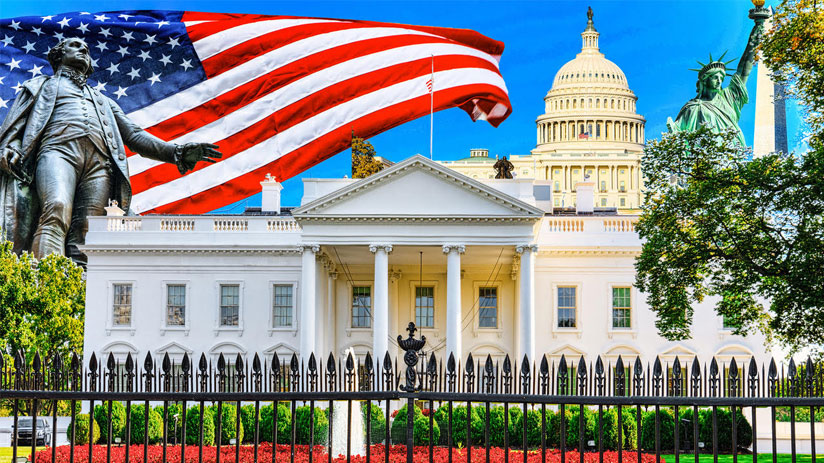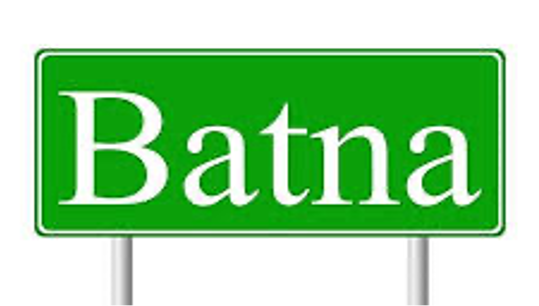
When negotiating across cultures, it is far more useful to understand, respect and interpret another culture’s negotiating style than it is to attempt to imitate that style.

By Marianne Eby
What do the best negotiators and jazz musicians have in common? That question is inspired by a recent article on CNN Opinion: “What the best jazz musicians and business brains have in common.” The argument made, not surprisingly, is that business leaders are more successful when they are open to possibilities rather than stuck on certainties, and when they are empowered to improvise. Good negotiators know how critical this insight is to what they do.
We teach and write about the importance of creativity as a game-changer in negotiations, and the need for improvisation as a skill at the bargaining table. But here are three deeper parallels between great jazz and great negotiation:
• Exchange: In jazz, particularly in rehearsal, the musicians exchange musical ideas, take cues from each other, and find new paths through a melody or score. The more experienced they are, and the better they know their instruments and their partners, the more possibilities there are in the music. In collaborative negotiation, similarly, preparation is essential, but then bargaining is a genuine exchange, where the unexpected can happen, and new ideas develop. Open-minded listening, asking questions, and paying attention to the other party's real interests can lead to creative concessions and counter-offers that bring new value to the bargaining table. In negotiation, as in jazz, "Improvisation grows out of a receptivity to what the situation offers."
• Learning and finding new value: In jazz improvisation musicians learn more about the music -- about the melody, their instruments, their partners. Similarly, in a good collaborative negotiation both parties learn more about their own and each other's businesses. A creatively handled conflict between a buyer's terms and a seller's bottom line can bring in new elements of value: a seller might offer a new packaging or delivery method, innovative payment terms, a valuable training program. Buyers might offer sources of new business, coveted tickets to a game. A good negotiator, like a jazz musician, finishes an exchange with an expanded understanding of their own and the other party's value.
• The relationship: Another facet of the parallel between jazz musicians and great negotiators is that both understand the core value of the relationship. Jazz musicians treat music as something that is only fully achieved with and in relation to another musician -- they know that "creativity is a collaborative achievement," as Barrett puts it. Similarly, good negotiators know that one of the most valuable products of a collaborative negotiation is often the collaborative relationship itself.
In jazz musicians as in great negotiators, creativity and improvisation are not just skills or tactics, but they represent a whole mindset, or philosophy of negotiating: a collaborative negotiation itself finds or creates new value, just as an interactive, collaborative jazz performance creates new music. So let's jazz up our negotiating!

By Thomas Wood
I learned about the power of collaboration in negotiating from John Nash. The death of John Nash and is wife in an auto accident this weekend is tragic. He influenced my work with negotiators around the world, and we are forever grateful for his contributions.
John Nash (1928-2015) is widely known on several levels: he suffered from acute chronic paranoid schizophrenia; he was a genius in mathematics; and with other collaborators, won the Nobel prize in Economics in 1994 for their work on game theory. There was an Oscar winning 2001 film, "A Beautiful Mind" starring Russell Crowe as John Nash, loosely based on parts of his life, in which most of us probably got our first glimpse into his thinking -- into his beautiful mind.
Before Nash, most negotiations were focused on the deal – the outcome – the conditions. But Nash introduced an original idea that doing what is best for all parties can result in more value than in pursuing what is only best for each party. In essence, he proved with mathematics that focusing on Relationships allows us to achieve win-win results.
Are relationships new to win-win? No. Ancient cultures have valued relationships for thousands of years. What was new was that Nash came up with a way to represent win-win so that the results are predictable and repeatable.
If you try to maximize your gain, your personal outcome, you may get nothing. In the movie "Beautiful Mind," the character John Nash refers to the renowned economist, Adam Smith's theory: "Individual ambition serves the common good. Best result comes from everyone doing what’s best for himself."
Nash determined that Adam Smith's theory was incomplete. Instead, Nash showed that the best result comes from everyone in the group doing what is best for himself/herself and for the group. If you pursue a result that benefits all – that’s win-win. And how do you get there? – by developing trusting relationships, collaborating on ideas, and addressing parties' interests.
Many news organizations, colleagues and individuals have left tributes to show appreciation for Nash's work in mathematics, economics, and bargaining. Actor Russell Crowe and Director Ron Howard tweeted their respects. One person who says he spent an afternoon with Nash commented that Nash taught him that "brilliant ideas are not the exclusive domain of people with great minds."
This is what we teach: brilliant ideas are those that solve ordinary problems, and those creative solutions come from the parties collaborating on how to bring value to each party and to the group.
I would have loved a chance to talk with John Nash.

By Leslie Mulligan
Businesses had to sharpen their negotiation skills as markets and supply chains endured enormous pressure in 2020. Now it’s the U.S. president’s turn to demonstrate his negotiation expertise in passing the $1.9 Trillion Covid-19 Relief Bill. Is he willing to collaborate with Congress, or will he take on a competitive approach? And how will the Republicans respond?
President Biden has made it his mission to tackle the devastating pandemic – it is the very first priority listed on the White House website. Specifically, he has vowed to get the massive $1.9 trillion coronavirus relief package passed in U.S. Congress and ensure Covid vaccines are distributed as rapidly as possible. Time is of the essence as the economy remains weak; many still face desperate times. Yet President Biden has also pledged a bipartisan approach to governance and wants to unite the country – so how do you negotiate effectively with Congress in this still polarized landscape to deliver on these promises; or do you?
Bipartisanship Approach?
Will a collaborative (win-win, interest-based) or even compromise approach produce bipartisan approval, or will the Administration have to take a competitive approach (win-lose) to get results.
Emerging from the last presidential election, the USA is seriously divided, no doubt about it. Yet President Biden is on a quest for unity, including in his Congressional relationships. As a long-serving alumnus of the Senate, he underscored the need for bipartisanship: “I think I can work with Republican leadership in the House and Senate. I think we can get some things done.” But will Republicans reciprocate – will they work with the president and their Democratic colleagues? We don’t know what is happening behind the scenes, but the president has only publicly met with 10 Republican senators in early February to discuss the Covid relief bill. And Republicans have felt rebuffed by their

Congressional colleagues: “…they were frustrated that their views weren’t being considered as Democrats pushed the legislation forward without GOP support”. This may foreshadow a competitive stance.
And yet, President Biden has the support of the American public writ large – even Republicans: “Half of all Republicans believe that President Joe Biden's $1.9 trillion COVID-19 relief package should be passed because of the proposed round of $1,400 stimulus checks, according to a new poll.” 73% of all Americans support this bill, according to a Navigator Research poll last week. Bipartisanship can be achieved in the public domain – that has certainly been realized in the run-up to the passage of this bill. But will any congressional Republicans come on-board? Jen Psaki, the White House Press Secretary, put this question succinctly when asked about Republican support: “Obviously, Republicans in Congress will have to make their own choice about whether they support the final package. But the vast majority of the public supports it, including the vast majority of most members’ constituents. So it’s really a question for them.”
But will Democrats entice them to support a negotiated bill, with a willingness to compromise by giving in on some of what’s been proposed, if not collaborate by finding new solutions that satisfy both parties? Or simply use a heavy-handed competitive approach to get what they want. The overriding negotiation strategy used here may set the tone for the next 4 years.
Time
Time is almost always a factor in negotiations. There is an adage in negotiating – “deadlines force concessions”. And President Biden feels the pressure of a looming deadline. On March 14th, over five  million people will lose their weekly $300 federal unemployment benefit. The PPP program runs out for small businesses on March 30th, and the airline industry may take a big hit as $15B in federal funds that subsidize payrolls also expires. But will Congress feel the same pressure of this deadline? Assuredly the Democrats largely will. But Republicans may resist the pressure, advocating that previous stimulus bills have set the stage for recovery - the trajectory is positive. Could Republicans use time as leverage to get more of what they want? All politicians have a political calculus even while making policy decisions – how will these deadlines impact their negotiations across the aisle and with President Biden?
million people will lose their weekly $300 federal unemployment benefit. The PPP program runs out for small businesses on March 30th, and the airline industry may take a big hit as $15B in federal funds that subsidize payrolls also expires. But will Congress feel the same pressure of this deadline? Assuredly the Democrats largely will. But Republicans may resist the pressure, advocating that previous stimulus bills have set the stage for recovery - the trajectory is positive. Could Republicans use time as leverage to get more of what they want? All politicians have a political calculus even while making policy decisions – how will these deadlines impact their negotiations across the aisle and with President Biden?
Policy vs Politics
Great negotiators know that their positions are driven not just by what they can conceivably achieve, but by a greater business or overriding imperative. The same is true in negotiations over legislation. Politics are the quintessential overriding imperative that drives what each legislator is willing to do.
“Negotiation in Congress is never solely about policy; politics and policy are always intertwined”, per the Task Force Report published in December 2013 by the American Political Science Association (APSA), Negotiating Agreement in Politics, which sheds light on the challenges of American political negotiations. There are valuable lessons in that report, with pragmatic advice for all parties at the Congressional negotiation table. One truism comes from former Rep. Barney Frank (D-MA): “Nobody pushes for unpopular policies.” And it appears that the Covid relief bill is popular! But elected officials manage their politics to keep their constituents (and donors) happy - they must justify their policy votes. Those up for reelection in 2022 will weigh their policy decisions now against a potentially different political landscape one year hence. In fact, news reports indicate that Republicans believe they are better served to deny President Biden a “bipartisan win” – and so are working to keep their own party cohesive, and plan their own PR push to paint this Bill as “bloated”, disparate and not well-aimed.
Stakeholders
When defining any negotiating strategy, it is paramount to assess who your stakeholders and what their Interests are, and how they impact your plan. When it comes to legislation, there is no shortage of competing stakeholder Interests to address.
President Biden is banking on the American public as the most important stakeholder in this landscape. Most of them enthusiastically support this bill, and the timing is such that now is the opportunity to strike. Big business also supports quick passage of this Bill. Just this week, 150 of the country’s most powerful executives penned a letter to President Biden urging action: “Congress should act swiftly and on a bipartisan basis to authorize a stimulus and relief package along the lines of the Biden-Harris administration’s proposed American Rescue Plan."
Republicans may take the longer view, and assume that their stakeholders, their constituents, will accept resistance to this bill. After all, it may get passed even without Republican support. Then the subsequent policies will help everyone, without Republicans having to go “on record” as supporting a democratic presidential priority. “In short, explicitly partisan political considerations condition the opportunities for deal-making on policy issues,” suggests the learned authors of the ASPA report mentioned earlier.
BATNA’s
No seasoned negotiator enters negotiations without a back-up plan, known as a Best Alternative to a Negotiated Agreement or BATNA. That means both sides of the political aisle have BATNAs in play that they are willing and able to execute.
play that they are willing and able to execute.
Can the Covid relief bill pass without Republican support? Does President Biden have an alternative to a truly bipartisan bill, a BATNA in the lexicon of negotiating? Absolutely – after all, the Budget Reconciliation tool is available to him, now that Congress passed the Senate’s budget earlier in February. As long as the Democratic party stays cohesive, this enables passage of the Covid relief bill with only Democratic support. If Democrats prove each item in their reconciliation bill has a direct budgetary impact, this tool can be used to prevent Republicans in the Senate from filibustering and blocking the floor vote. So inasmuch as President Biden would like Republican support, it is not necessary for passage of this bill. His BATNA is strong, and he is willing to execute it, to ensure the needs of the American public are being met. Republicans too have their BATNA – they can decline to support this Bill, counting on their supporters to look positively on that decision down the road. This is a risk, but will they be willing to take it?
Trades
Negotiators come to the table prepared to trade. And President Biden has indicated some willingness to trade on the minimum wage – its inclusion in the Bill at all, a phased-in timeline to protect small businesses, and maybe even the new wage rate.
There are two factors that complicate this element of the bill. First, Senator Joe Manchin (D-WVA) has said he does NOT advocate for the full $15/hour – although he would support a reduced rate of $11/hour. Second, couple that with the fact that the Senate parliamentarian has ruled that as written, the minimum wage hike does not meet the threshold of having a “direct budgetary impact” – thus eliminating it as is from inclusion in the Budget Reconciliation Bill. This bargaining chip may come off the table entirely when the Bill reaches the Senate, or it may become a viable bargaining chip. The president has said he is open to negotiating the minimum wage. But cohesion among the Democratic senators will still be crucial on other elements of the bill, and keeping Senator Manchin in the fold may be a challenge that President Biden faces beyond just this particular legislation.
Final Thoughts
This bill will get passed, but probably with Democrats taking on a competitive approach ultimately and driving passage without any compromise. President Biden is willing to execute his BATNA and believes that his primary Stakeholder – the American public – needs the relief that it will provide, and will reward his Administration for it. Bipartisanship will have to wait, as the president feels the pressure of the March deadline. The Republican political calculus indicates that they too can take a competitive approach and won’t be penalized by their supporters. But this first interaction between the president and Congress may not bode well for collaboration between the two parties in the future. Time will tell, so stay tuned.
Please provide us with some details and we will be in touch soon!